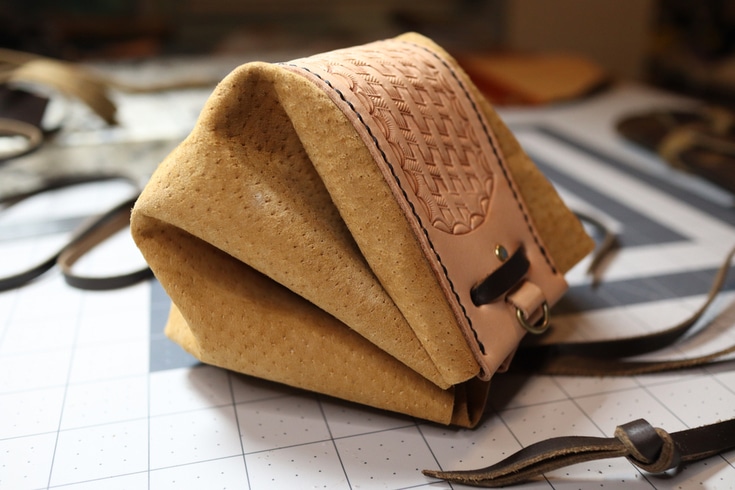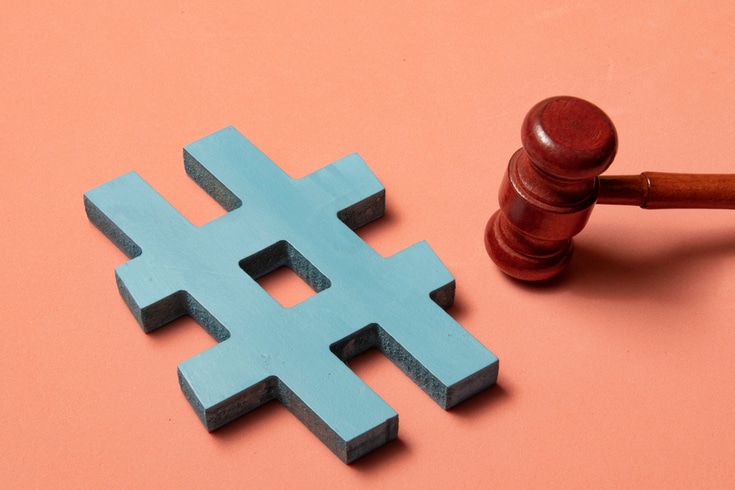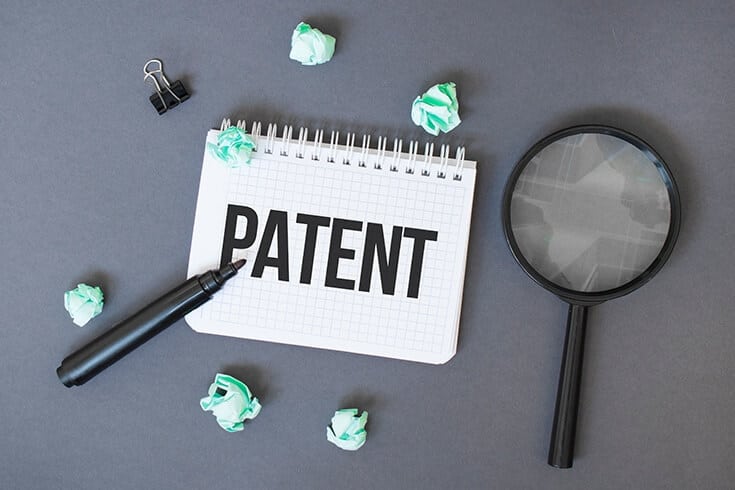Does Using Another Company's Product Name as a Hashtag Constitute Trademark Infringement? Explaining Domestic and International Cases

“Does Using Other Companies’ Brand Names as Hashtags Constitute Trademark Infringement?”
In online retail, hashtags are utilized to increase searchability and boost sales. For instance, is there a legal issue with tagging a self-made bag for sale with the hashtag of a well-known brand name?
On September 27, 2021 (Reiwa 3), the Osaka District Court delivered a landmark decision affirming trademark infringement for the use of hashtags. This was the first court decision to recognize the act of using another company’s trademark (product name) as a hashtag as a trademark infringement, drawing significant attention.
Here, we will explain trademark infringement, which can also lead to criminal prosecution, and provide guidance on how to appropriately use hashtags related to trademark rights as a marketing tool.
What is a Trademark Right?

Under the Japanese Trademark Law, a trademark right is defined as follows:
Article 1 (Purpose)
This law aims to protect trademarks, thereby maintaining the business reputation of those who use the trademarks, contributing to the development of industry, and simultaneously protecting the interests of consumers.
Article 2 (Definitions, etc.)
In this law, a “trademark” refers to something that can be recognized by human perception, including personalitys, figures, symbols, three-dimensional shapes, colors, or a combination thereof, sounds, or other items specified by ordinance (hereinafter referred to as “marks”), and is defined as follows:
1. Items used by a person who produces, certifies, or transfers goods as a business for those goods.
2. Items used by a person who provides or certifies services as a business for those services (excluding those listed in the preceding item).
In simple terms, a trademark is an identification sign (trademark) used to distinguish one’s own goods or services from those of others. It includes not only names and logos but also motion trademarks, hologram trademarks, color-only trademarks, sound trademarks, and position trademarks.
A trademark right is an intellectual property right that arises upon application and registration with the Japan Patent Office. The trademark owner is granted the exclusive right to use the registered trademark in the designated field (designated goods and services) (exclusive right, Japanese Trademark Law Article 25).
Furthermore, it is possible to prevent the use of a trademark that is identical or similar to the registered trademark on designated goods or similar goods (prohibition right, Japanese Trademark Law Article 37, Paragraph 1). In addition to this, there is also a system for registering defensive marks, which extends the prohibition right to ‘non-similar’ goods and services (Japanese Trademark Law Article 64).
If you wish to use another company’s registered trademark, you must obtain permission from the trademark owner to use the trademark.
Requirements for Trademark Infringement
Trademark infringement refers to the act of using a trademark that has been registered by another party, or a trademark similar to it, without authorization in the field (class) covered by the trademark rights.
To constitute trademark infringement, the following two requirements must be met:
- Use of the registered trademark or use within a similar scope
- Trademark use
We will explain each of these requirements below.
Use of the Registered Trademark or Use within a Similar Scope
“Use of the registered trademark or use within a similar scope” refers to the use of a trademark that is identical or similar to a registered trademark on designated goods or services, or on goods or services similar to them.
Trademark rights grant the trademark owner exclusive rights in the field for which the trademark is registered. Therefore, “the act of using a trademark by another party within the range of designated goods/services or similar goods/services for which the trademark is registered” constitutes a requirement for trademark infringement.
Trademark Use
“Trademark use” refers to the use of a trademark by a provider of goods or services to distinguish their products from those of others. This becomes a crucial means for consumers to recognize the origin of the goods and to trust their quality (the function of indicating origin).
Using another party’s trademark in a way that suggests the goods or services are those of one’s own company constitutes “trademark use,” meeting the requirement for trademark infringement.
Responding to Trademark Infringement
In the event of trademark infringement, the trademark holder has the following civil claims against the infringer:
- Injunction and Destruction Order (Japanese Trademark Law Article 36)
※There is no statute of limitations. However, it is limited to the duration of the patent right, which is 10 years and renewable.
- Claim for Damages (Japanese Civil Code Article 709)
※The statute of limitations for extinction is 3 years from the time the damage and the infringer are known, and 20 years from the time of the tort.
- Claim for Restitution of Unjust Enrichment (Japanese Civil Code Articles 703 and 704)
※The statute of limitations for extinction is 5 years from when the right to exercise is known, and 10 years from when the right can be exercised (Japanese Civil Code Article 166, Paragraph 1).
- Claim for Measures to Restore Reputation (Japanese Trademark Law Article 39)
※The statute of limitations for extinction is 3 years from the time the damage and the infringer are known.
Furthermore, if someone intentionally infringes on another person’s trademark rights (knowing that it is a registered trademark of another person and intending to use it on the designated goods), they may also be subject to criminal penalties.
The Japanese Trademark Law stipulates the following penalties:
Article 78 (Crime of Infringement)
Those who infringe on trademark rights or exclusive rights to use (excluding those who are deemed to have committed an act of infringement under the provisions of Articles 37 or 67) shall be punished by imprisonment for not more than 10 years or a fine of not more than 10 million yen, or both.
Article 78-2
Those who are deemed to have committed an act of infringement on trademark rights or exclusive rights to use under the provisions of Articles 37 or 67 shall be punished by imprisonment for not more than 5 years or a fine of not more than 5 million yen, or both.
Article 79 (Crime of Fraud)
Those who have obtained a decision or ruling on trademark registration, protective mark registration, renewal of the duration of rights based on trademark or protective mark registration, or registration objection through fraudulent acts shall be punished by imprisonment for not more than 3 years or a fine of not more than 3 million yen.
Article 80 (Crime of False Representation)
Those who violate the provisions of Article 74 shall be punished by imprisonment for not more than 3 years or a fine of not more than 3 million yen.
※In the case of a corporation, dual punishment provisions apply, and in addition to the perpetrator, the corporation may also be fined up to 300 million yen for the crime under Article 78, and up to 100 million yen for the crimes under Articles 79 and 80 (Japanese Trademark Law Article 82, Paragraph 1, Items 1 and 2).
Related article: Learn from Examples: Standards and Penalties for Trademark Infringement (Imprisonment & Fines)[ja]
Injunction Against Trademark Infringement via Hashtags

Here, we will explain the key points of the first court decision that recognized trademark infringement for the act of using another company’s product name as a hashtag. This is the Osaka District Court’s decision on September 27, Reiwa 3 (2021) in the “Trademark Infringement Injunction Case” Osaka District Court, September 27, Reiwa 3 (2021)[ja].
The defendant is an individual seller who, as a hobby, had been listing and selling handmade products on the Mercari sales site for over a year, describing them as “Charmant Sac style” bags.
The seller added search functionality in the form of “(#) + (keyword).” In the “keyword” section, they used the trademark of the Japanese fashion brand “Charmant Sac” and similar expressions like “Charmant Sac style,” tagging multiple posts.
The plaintiff, the trademark holder of “Charmant Sac,” argued that the use of the registered trademark “Charmant Sac” or similar terms, and the drawstring bags sold on the defendant’s site, were identical to the designated goods (bags and pouches) covered by the trademark rights, thus constituting “trademark infringement.”
Another point of contention was whether the defendant’s over-a-year-long hobby of listing and selling similar products could be considered “as a business.”
The court stated that the use of hashtags was intended to guide users to the defendant’s site and promote the sale of products listed there. It determined that “for users, the listed products could be recognized as branded goods.”
In other words, “the display of the defendant’s mark 1 (#Charmant Sac) on the defendant’s site is seen as functioning as a source identifier and a trademark distinguishing the defendant’s goods from others,” and thus constitutes “trademark use.” The court rejected the defendant’s argument, ruling in favor of an injunction against the infringement of the trademark rights.
This judgment became the first case in Japan to decide that tagging another company’s registered trademark (product name) for marketing purposes constitutes trademark infringement.
Other Examples of Hashtag Use and Trademark Infringement

Recent international cases include the Taiwanese apparel-related product “QQBOW case” (September 2020) and the “Lightweight case” involving the German tire manufacturer Carbovation’s Taiwanese general distributor (October 2021). In both instances, Taiwanese courts rejected the plaintiffs’ claims that “#OtherCompanyBrand” constituted trademark use, thereby denying trademark infringement.
In the “QQBOW case,” it was noted that while the plaintiff primarily used Facebook as a sales platform, the defendant used hashtags on an e-commerce site. Hashtags are meant to navigate within the same platform to brand product pages, and thus were not considered “source identifiers.”
Furthermore, hashtags are primarily intended to link similar topics on online platforms and do not possess the nature of trademarks. After examining the online posts and product content related to hashtags, the Intellectual Property Court of Taiwan determined that using registered trademarks as hashtags did not constitute “trademark use.”
In Taiwan, the most critical factor in trademark infringement is “likelihood of confusion,” meaning whether consumers might mistakenly believe that the source of the defendant’s mark is the same as the plaintiff’s. In this case, the following factors significantly influenced the decision:
- The plaintiff’s brand was not well-known
- The term “款” (meaning “style” in Japanese) was added, indicating to consumers that the product was not identical to the plaintiff’s brand but had a similar style
Therefore, different conclusions might be reached if the plaintiff’s trademark were well-known or if the defendant’s representation included a clear disclaimer.
On the other hand, the main issue in the “Lightweight case” was genuine parallel imports and international exhaustion.
In the “Lightweight case,” the plaintiff only held trademark rights for the logo, not for the “company name = Carbovation” or “brand name = Lightweight.”
- The defendant was selling “3T brand bicycles” from Italy, with whom they had a dealership agreement, and was also parallel importing and reselling tires from the plaintiff’s brand used on those bicycles
- In Facebook posts, the main focus was on introducing the bicycles sold by the defendant, and hashtags such as “#carbovation” and “#lightweight” were deemed sufficient to indicate that the parts used on the bicycles were tires from the plaintiff’s brand, thus not constituting trademark use
Based on these judgments, it appears that even if the plaintiff had held Taiwanese trademark rights for “Carbovation” or “Lightweight,” the use would not have been considered trademark use.
Additionally, both the first instance of the “QQBOW case” and the “Lightweight case” addressed whether using hashtags related to other companies’ trademarks violated the Fair Trade Act (similar to Japan’s Anti-Monopoly Law), and in both cases, it was considered fair use.
Whether a hashtag followed by a registered trademark is considered merely a search function or trademark use varies by individual case.
As such, since the handling of trademark rights related to hashtags differs by country, we recommend preparing in collaboration with experts for the country your company intends to enter.
Conclusion: Consult a Lawyer for Trademark Infringement Issues
In this article, we have provided a detailed explanation of whether using trademarks in hashtags constitutes trademark infringement. While judgments vary depending on the case and country, there have been instances where trademark infringement through hashtags has been recognized.
For issues related to trademark infringement, we recommend consulting with a lawyer who is knowledgeable in intellectual property rights risk management. Conversely, it is also possible that your company’s communication efforts might inadvertently infringe on another company’s trademark rights. Having a specialist conduct a legal review of your advertising and other communications can provide peace of mind.
Guidance on Measures by Our Firm
Monolith Law Office is a law firm with extensive experience in both IT, particularly the internet, and legal matters. In recent years, trademark infringement in online retail has become a significant issue, and the need for legal checks is ever-increasing. Our firm analyzes the legal risks associated with businesses that are either already operational or about to launch, taking into account various legal regulations. We strive to legalize operations without halting the business whenever possible. Please refer to the article below for more details.
Areas of practice at Monolith Law Office: IT & Intellectual Property Legal Services for Various Companies[ja]
Category: General Corporate





















